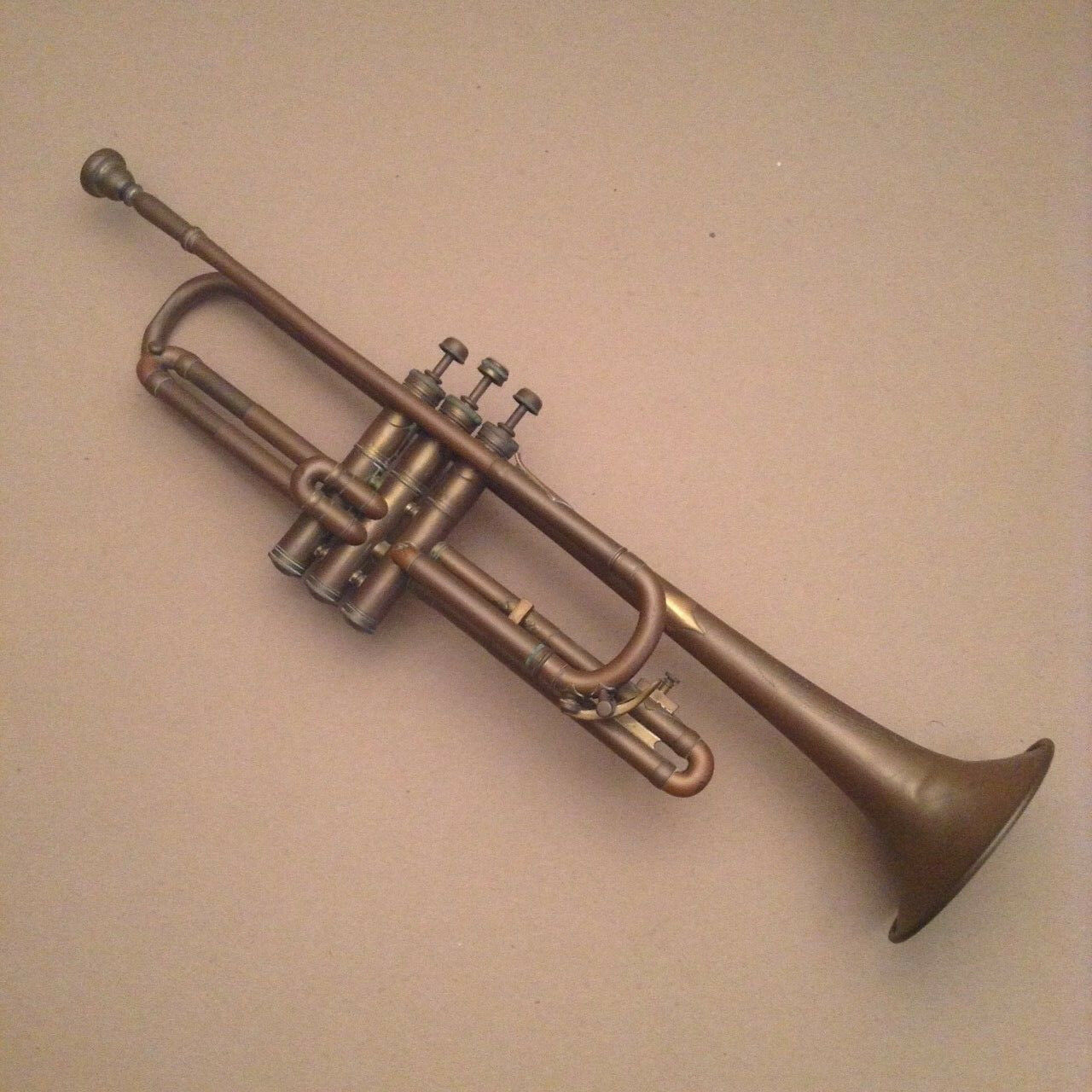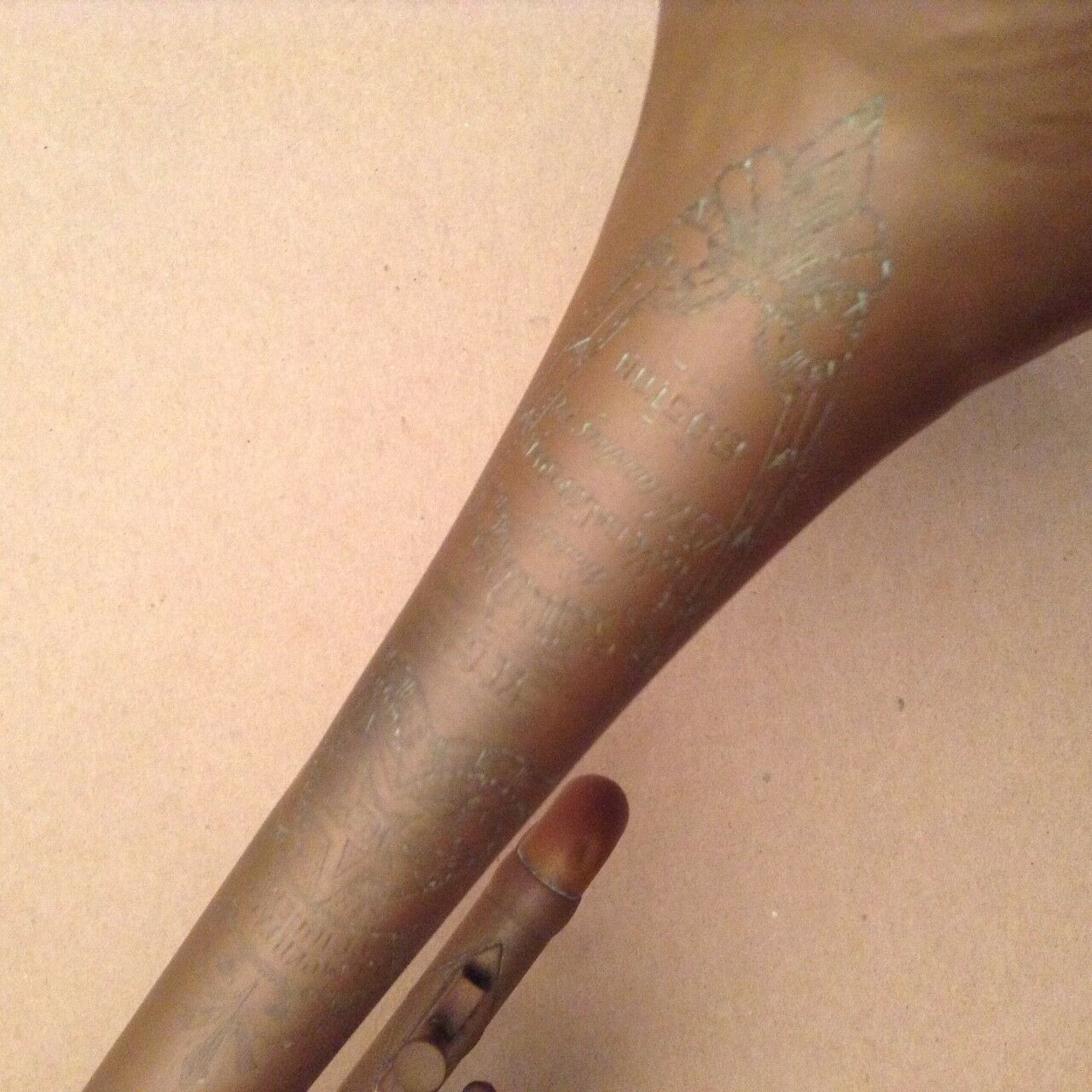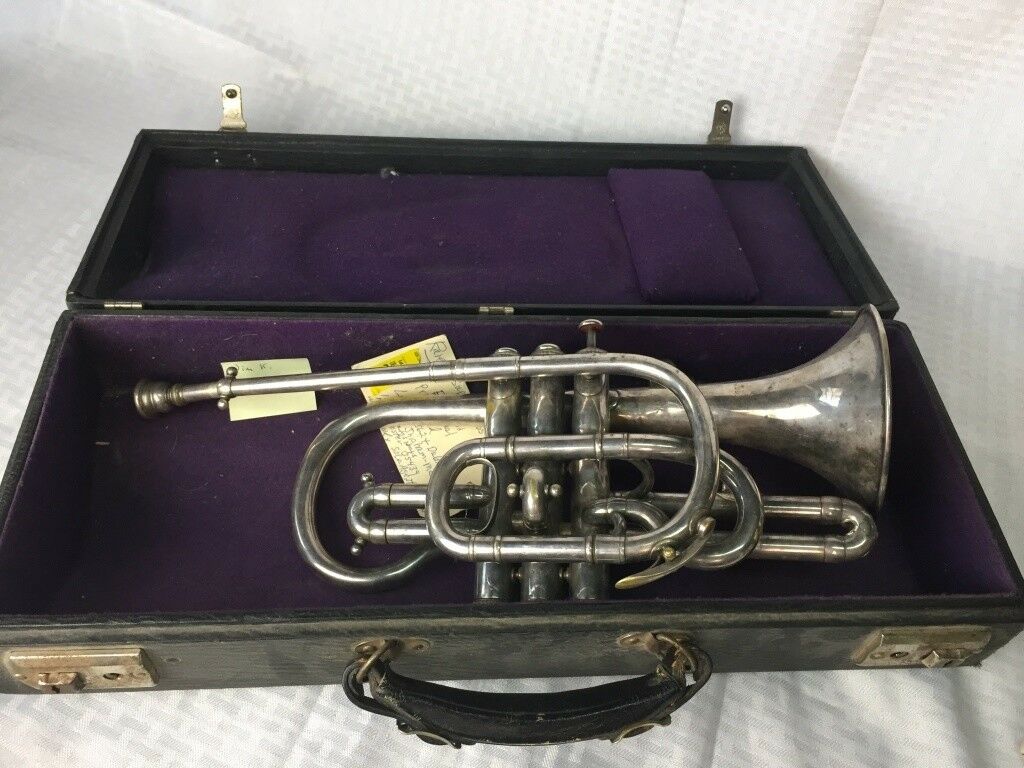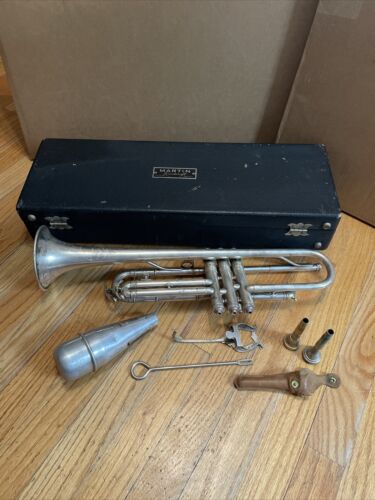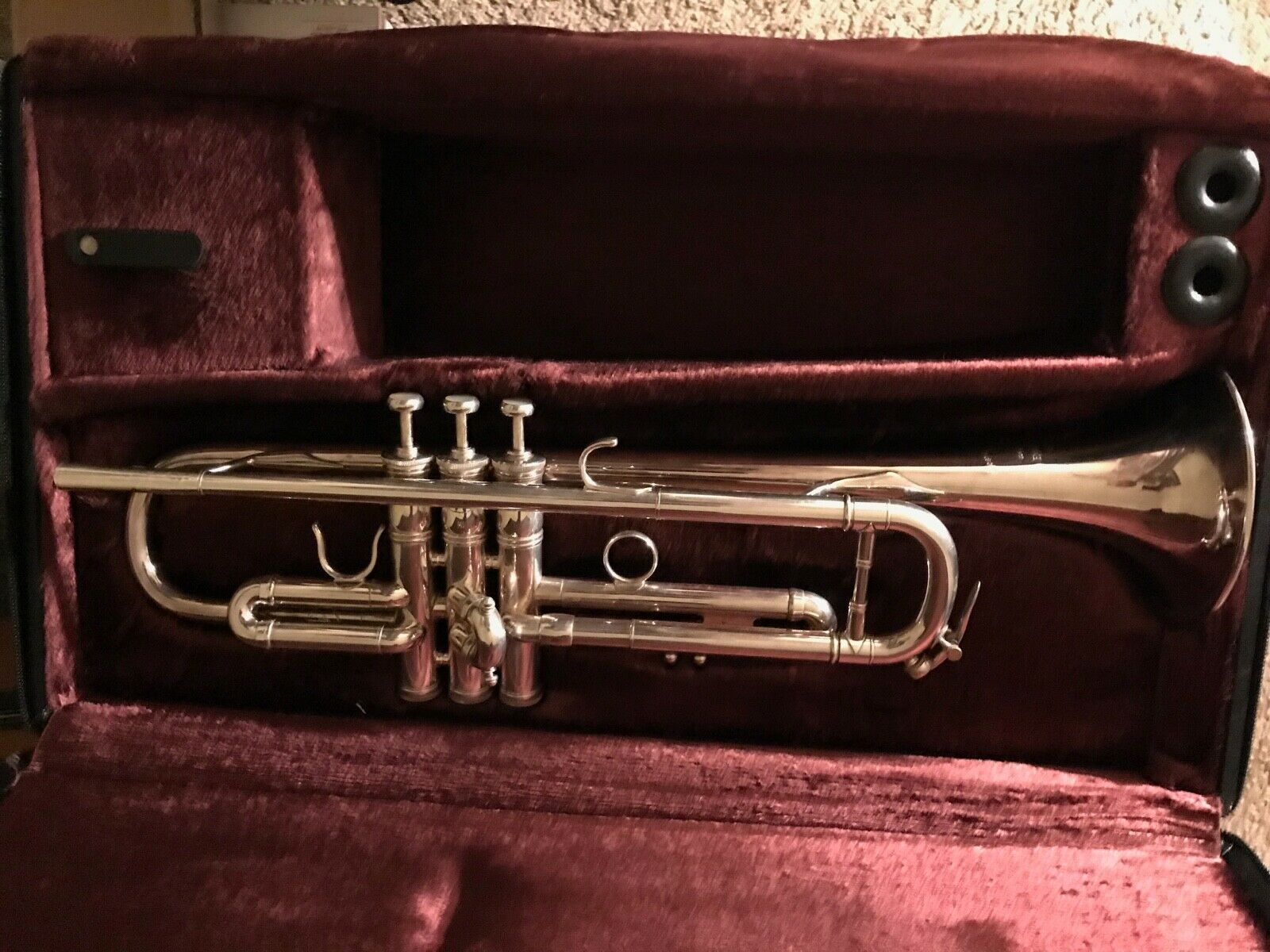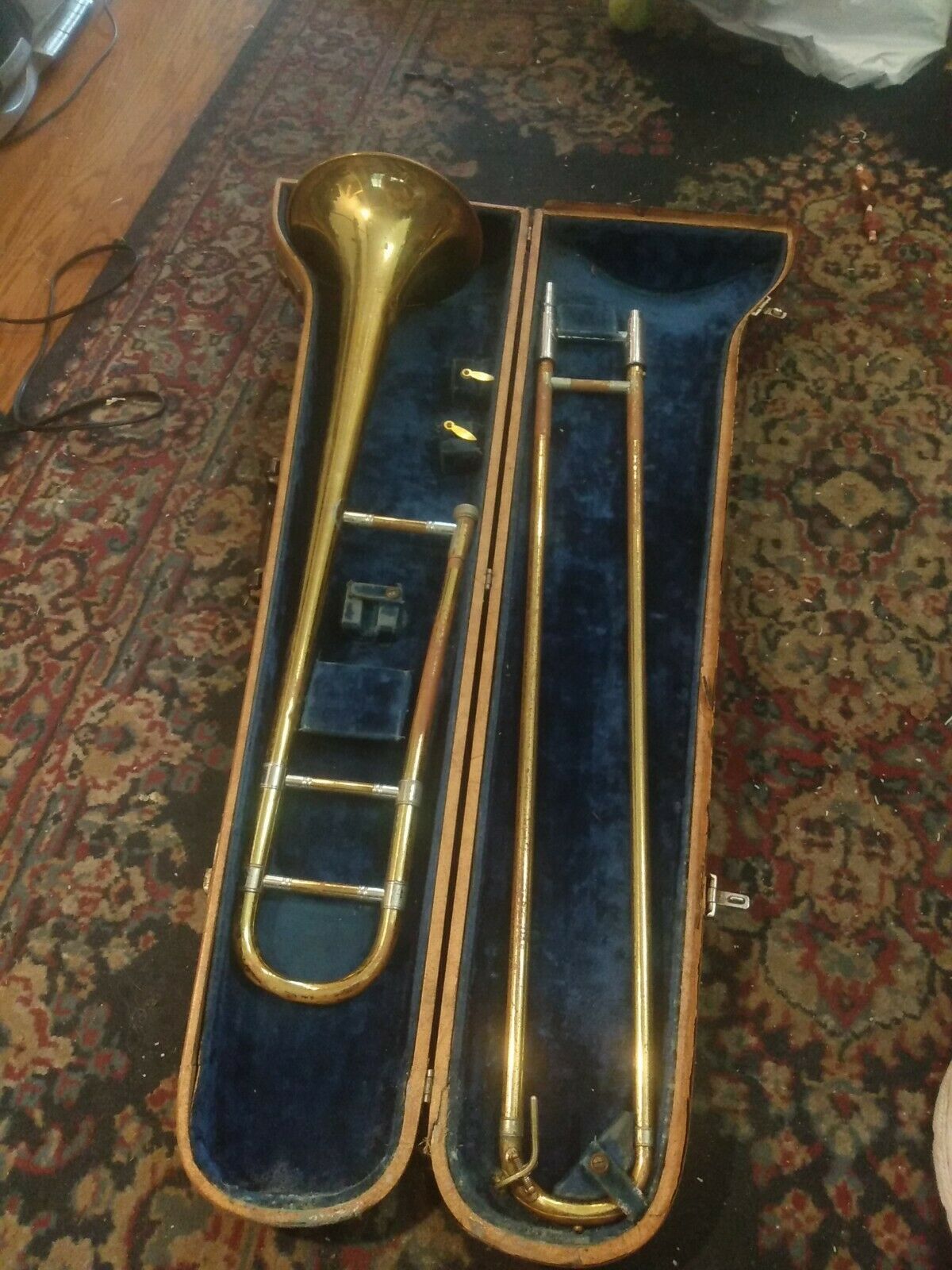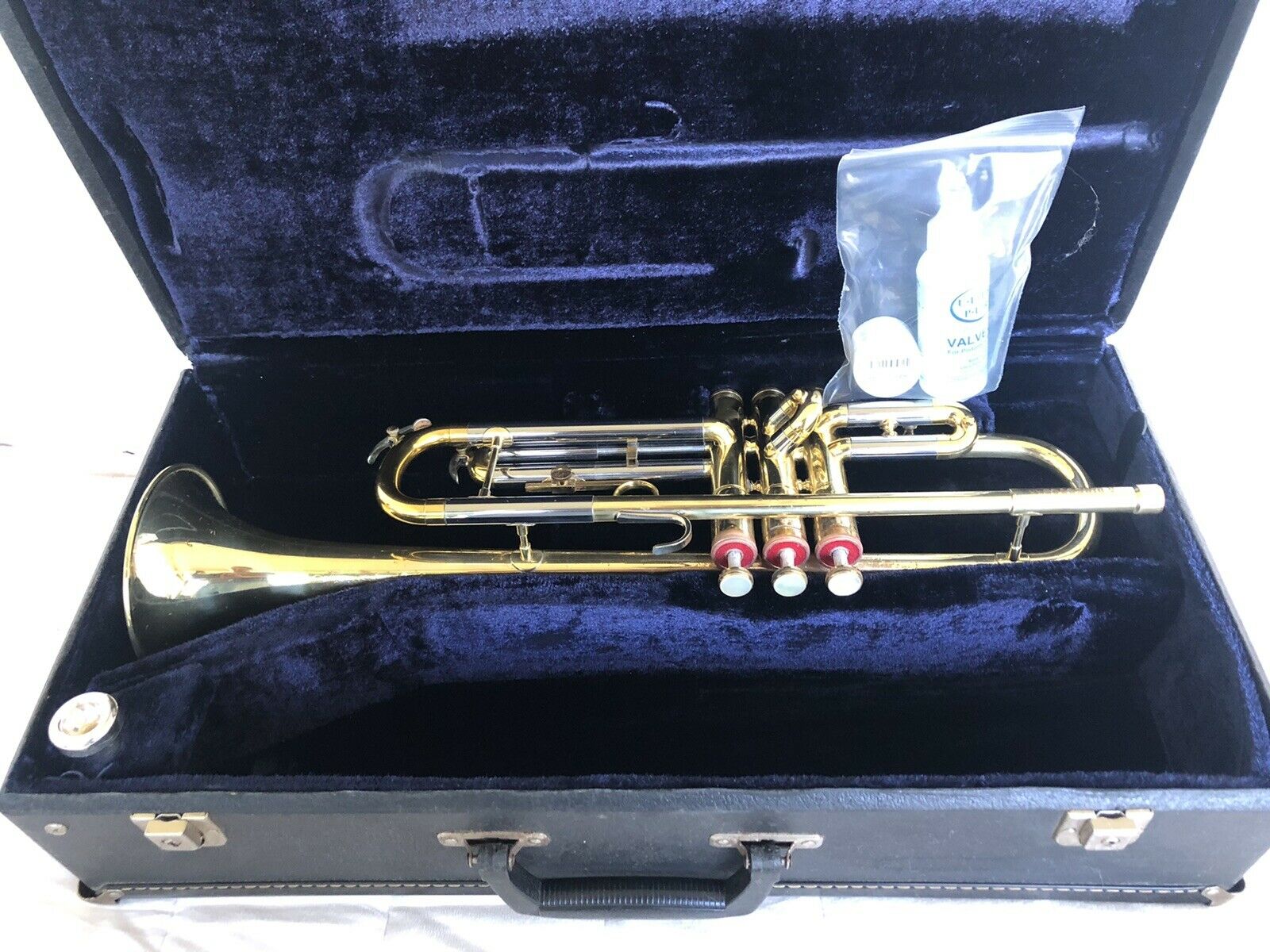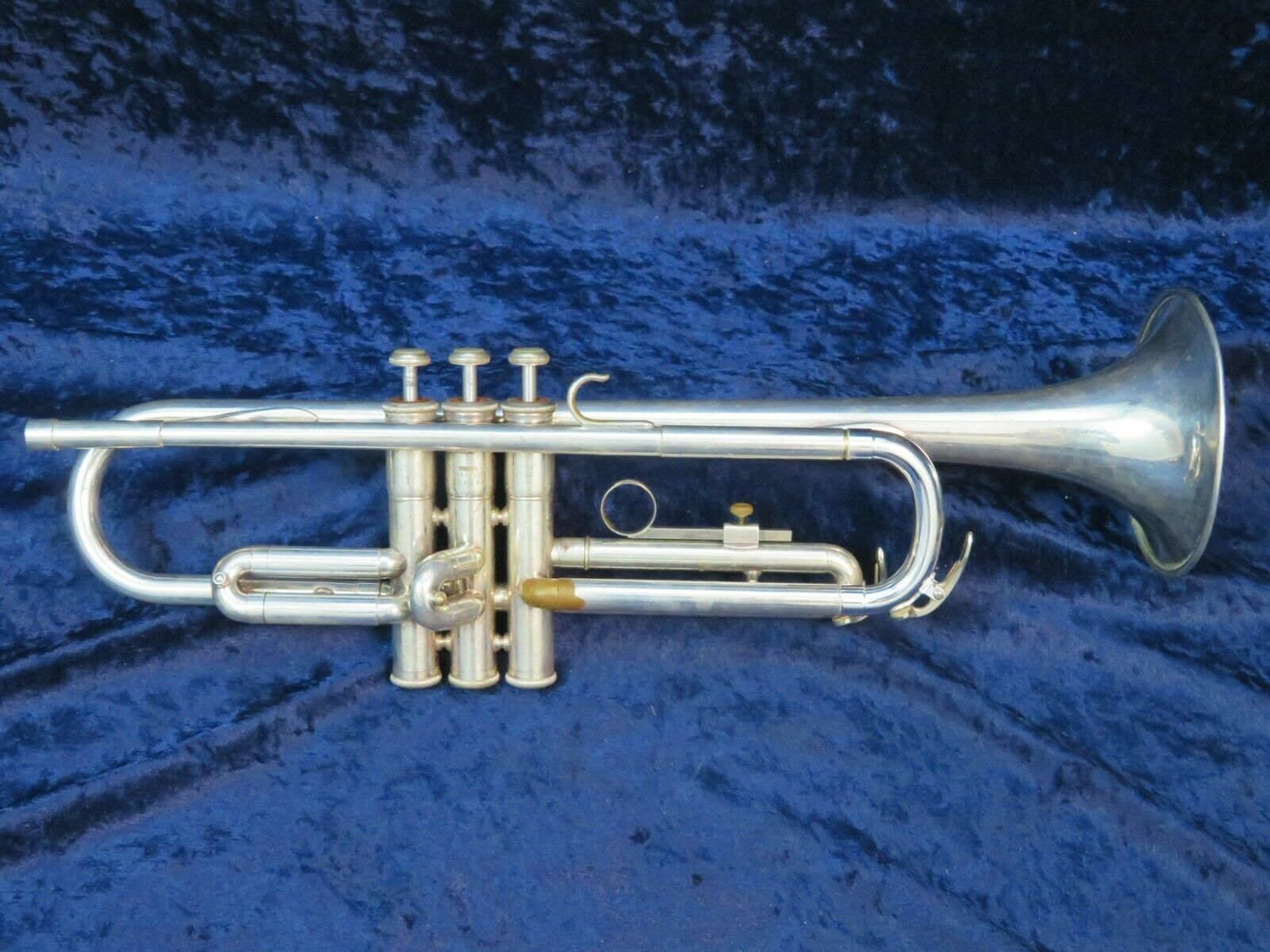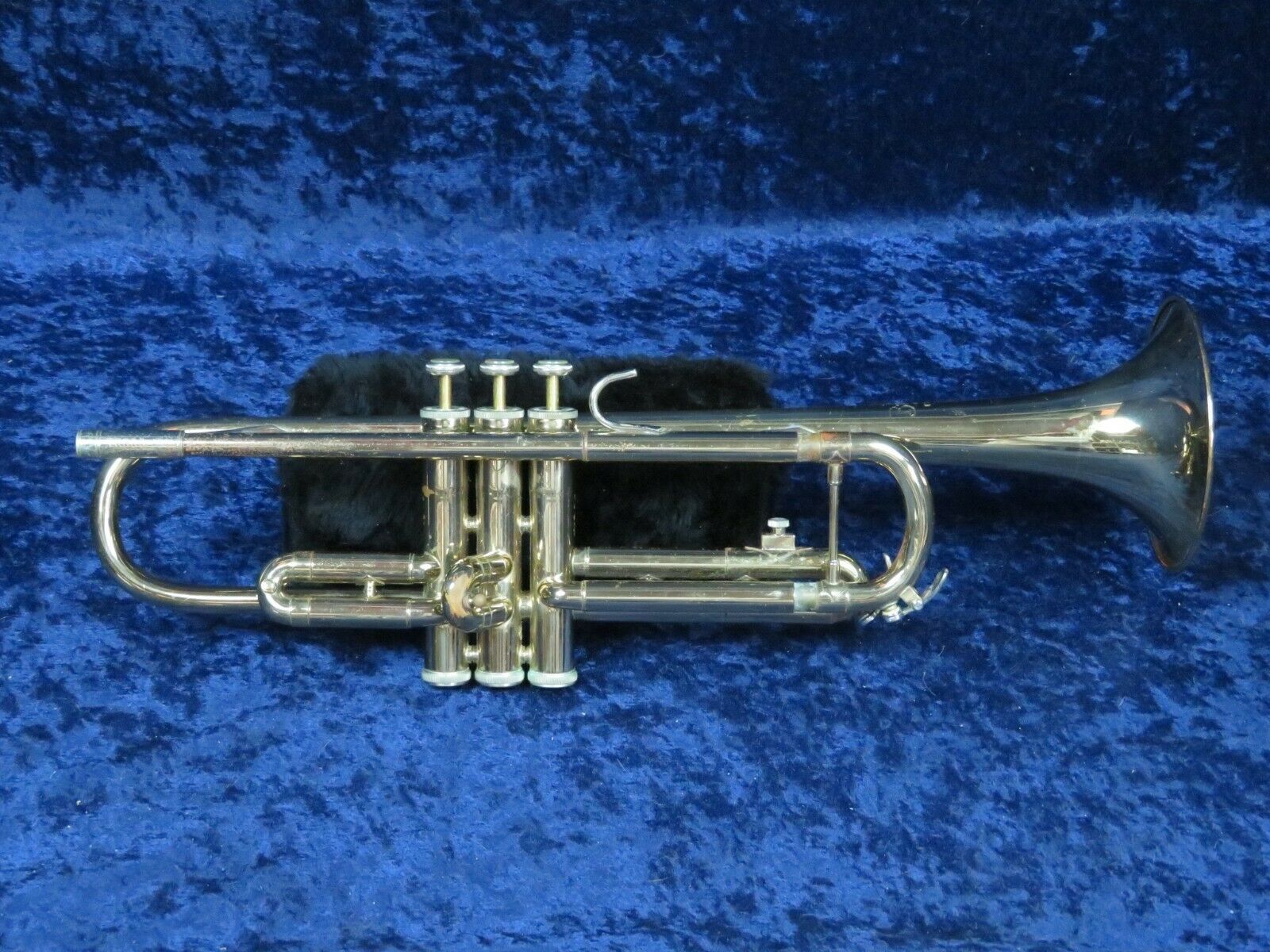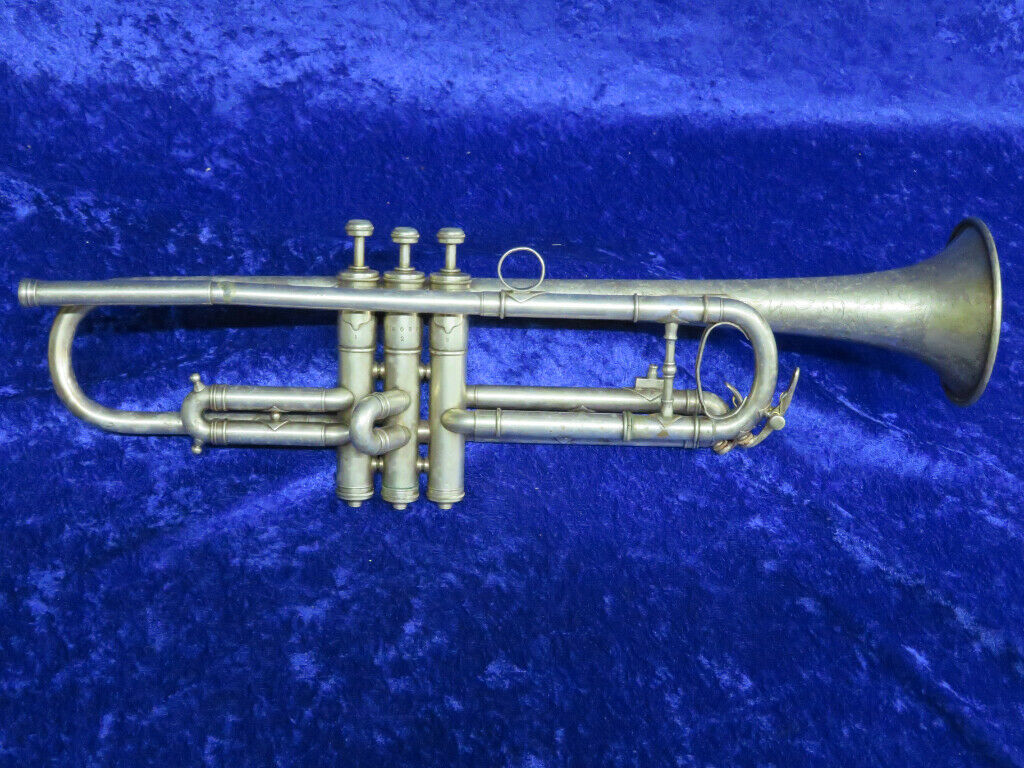-40%
Antique Classic Vega Standard Trumpet Horn Made in Boston Patent July 1917
$ 132
- Description
- Size Guide
Description
Antique Classic Vega Standard TrumpetMade in Boston
Unique piece of musical instrument history.
Patent July of 1917
Condition: As pictured. Patina commensurate with age. We dismantled and reorganized the internals of the trumpet into the correct order, and now it is possible to play it again as air does pass through and the spring mechanisms for the buttons are functional.
The
Vega Company
was a musical instrument manufacturer that started operations in Boston, MA in 1881. The company began under Swedish-born Julius Nelson, his brother Carl, and a group of associates that included John Pahn and John Swenson. The founders had previously worked for a guitar shop run by Pehr Anderberg that made instruments for John C. Haynes, another Boston Musical Instrument Company. Nelson had served as foreman of guitar and mandolin manufacturing at Anderberg's shop. Subsequently, Julius and Carl Nelson bought out the other founding associates and established the Vega company.
In 1904, Vega acquired the instrument manufacturing firm (primarily building banjos) previously operated by A. C. Fairbanks. Vega also acquired the plectrum instrument division of Boston's Thompsen & Odell Company, which made bowl-back mandolins, guitars, and several types of banjos. The emphasis remained true to Vega's origins, however, with about 60% of business centered on stringed instruments and 40% on brass.
The Vega Company is best known today for its banjos, such as the Vegavox model they co-developed with famous plectrum player Eddie Peabody. Vega continued to build and sell A.C. Fairbanks banjos after it acquired that company. Vega initially labeled these instruments
A. C. Fairbanks
, then switched to
Fairbanks banjo by the Vega Co.
, then eventually to just
Vega
. David L. Day, who had been the chief acoustical designer at Fairbanks, became general manager of the Vega stringed instrument division and continued to develop innovative and successful banjo designs. For example, the Vega Tu-ba-Phone, which first appeared in 1909, featured a perforated metal tone ring—a ring-shaped, square-sectioned metal tube that lay between the instrument's wooden rim and calfskin head. The Tu-ba-Phone tone ring provided a volume and tone still admired by many banjo players.
Vega also produced a line of brass instruments. In 1909, Vega purchased the Standard Band Instrument Company of Boston incorporating their line of horns. This company had previously operated under names including Quinby Brothers, Hall & Quinby, Hall Quinby Wright Company, and others. It had been founded in 1861 by David Hall, a band leader, bugle player and instrument maker. The name Wright came from E.G. Wright whose E.G Wright and Company merged with other investors to create the Boston Musical Instrument Manufactury in 1869. Wright was briefly a partner in the company between 1870 and his death. Vega built brass instruments under the Vega and Standard names well into the 20th century.
Perhaps the most visible Vega instrument in the 1950s and 60s was the long neck 5-string banjo designed and used by folk singer Pete Seeger, and later by several folk groups like the Kingston Trio and The Limeliters.
Vega trumpets and cornets were on par with the highest quality brass horns of their time. Popular with jazz artists as well as later big bands and solo artists such as Miles Davis, who performed on the Vega Power Model before he endorsed the Martin Committee, they enjoyed a comfortable niche in the professional market. However, producing handcrafted professional horns without keeping an eye to increasing demand for student instruments, and with aging artisans retiring, the company dropped horn production to concentrate on stringed instruments.
The trumpet is approximately 22 inches in length
Shipping weight, is approximately 4lbs.
Shipping charges will be determined by destination. For international shipping, please contact for an estimate if necessary.
Please be aware, purchase cancellations and returns, will be incur a 4 percent payment processing fee. This is due to the fact that Paypal and other payment services, do not refund processing fees for transactions. Even in the event a purchase is cancelled prior to shipment, or returned. The payment processing fees are not refundable.
